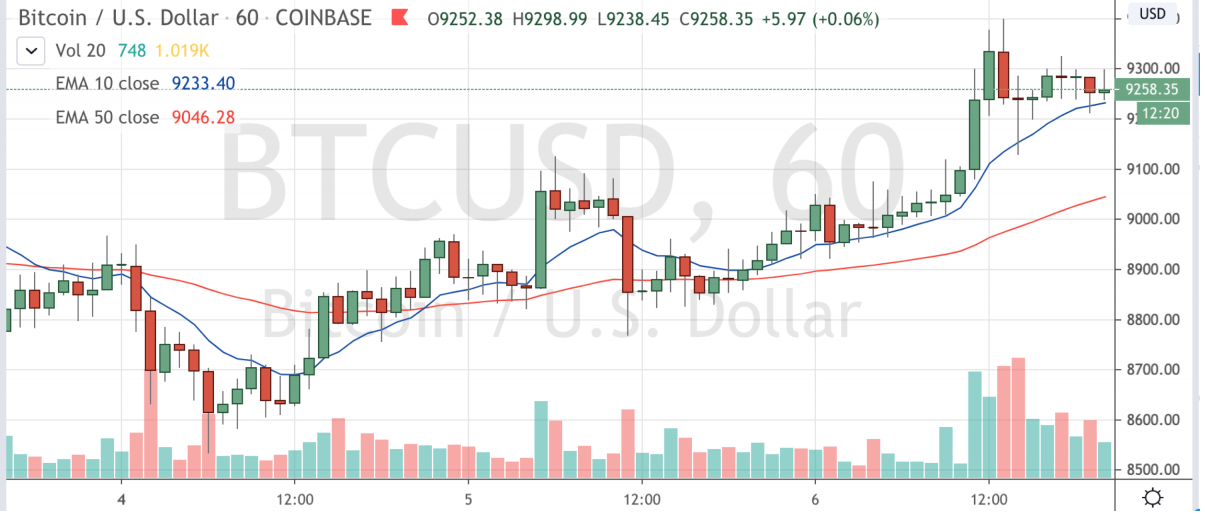Derivatives May Reduce Miner Selling Pressure After Bitcoin Halving
May 07, 2020 @ 15:31 +03:00
In early trading at 00:00 UTC, the world’s oldest cryptocurrency was around $8,957 before jumping as high as $9,399 at 13:00 UTC (9 a.m. EDT) on spot exchanges including Coinbase. It was changing hands at a price above its 10-day and 50-day technical indicator moving averages, signaling bullish sentiment Wednesday. At press time bitcoin (BTC) was trading up 3.8% over 24 hours at $9,258.
Big-name bitcoin investor Mike Novogratz of Galaxy Digital has been making the rounds this week, talking about how he views digital scarcity driving bitcoin prices higher after next week’s expected halving event. “Next Tuesday we have the bitcoin halving where the inflation rate gets cut in half,” Novogratz said on CNBC’s Closing Bell program Monday. “You talk about inflation in fiat currencies where the [Federal Reserve] is printing money like a money-printing machine and in the bitcoin space the money supply gets cut.”
This may be true, but it also means a smaller reward and thus smaller revenue for miners to pay labor, rent and electricity. That’s because they will have fewer bitcoin inflows they can sell for cash. However, in July 2016, the last time bitcoin supply was cut in half, the market was much different.
Garrick Hileman, an economist and a long-time researcher in the crypto space currently at wallet provider Blockchain.com, says things have changed since the previous halving halving event. For example, CME didn’t start offering bitcoin futures until late 2017. Ahead of this halving, bitcoin miners can purchase futures contracts, locking in bitcoin prices to pay for their expenditures.
Open positions on CME futures recently hit a 10-month high. However, the U.S.-based platform takes up only a small fraction of the market. The biggest players in the crypto derivatives market — such as Huobi, Binance BitMEX and OKex — are based in Asia and don’t accept U.S. customers.
Derivatives May Reduce Miner Selling Pressure After Bitcoin Halving, CoinDesk, May 7







